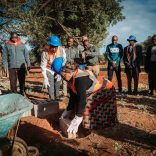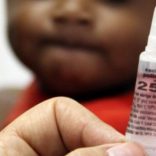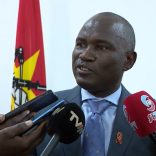Norway and UNFPA strengthen vital support for women and girls with new USD 2.8 million agreement ...
Mozambique ‘The challenge is to get the medicine to the patient’s mouth’- stockpile enough for 9 months

FILE- for illustration purposes only. [File photo: MzNews]
The Minister of Health, Ussene Isse, announced that Mozambique had stocks of medicine sufficient for the next nine months, but admitted “challenges” in getting the drugs to patients.
“Before the announcements from the United States [of suspension of support] we had stock for nine months in the country, and with the relief we are calm (…) in terms of the quantity of medicine. But now the challenge is to get the medicine to the patient’s mouth. This is fundamental, and we all have to work together,” Minister Isse told the media on Wednesday.
The minister yesterday visited two pharmaceutical factories in Maputo province, southern Mozambique, which he challenged to produce medicines for the National Health System with a view to reducing external dependence.
“I came to the conclusion that we have the conditions in the country to solve the main health problems, because I found a production line for medicines here that responds to the profile of diseases in our country. These factories will be able to export to neighbouring countries, because they are of high quality,” the minister of health said.
Among members of the Community of Portuguese Language Countries (CPLP), Mozambique received the most aid from the United States Agency for International Development (USAID) in 2023, totalling US$664.122 million (€639.70 million).
The data is contained in one of the few web pages on the internet that still contain official USAID information after a decision by the Donald Trump administration to dismantle the agency, with 2023 being the most recent fiscal year for which there is complete information, according to data captured by Lusa on February 4.
In the CPLP universe, Angola followed Mozambique on the list of largest recipients of USAID aid in the 2023 fiscal year, with US$71.320 million (€68.7 million), joined, in descending order, by Brazil with US$68.985 million (€66.45 million) and Timor-Leste with US$43.688 million (€42.08 million).
The Mozambican National Health System has faced several crises over the last two years, firstly by strikes called by the Association of Mozambican Doctors against salary cuts and lack of overtime pay, and then by the Association of United and Solidary Health Professionals of Mozambique (APSUSM), in defence of better working conditions for other professionals as well.
Among other matters, the association demands that the government provide medicines to hospitals, which in some cases have to be purchased by patients; acquire hospital beds and address the “lack of food”; equip ambulances with emergency materials and non-disposable personal protective equipment, the lack of which is “forcing employees to buy out of their own pockets”.
In June, 2024, the Citizen Observatory for Health (OCS) asked the Mozambican government for clarification about the alleged lack of “essential” medicines in public hospitals, despite pointing out that there is “sufficient stock” for patients to be treated.
The Mozambican government confirmed in the same month that it spends eight billion meticais (€116 million) annually on the acquisition of medicines.
On February 7, Inocêncio Impissa, spokesman for the Mozambican government and Minister of State Administration and Public Service, said that the suspension of US funding also has implications for the acquisition and distribution of medicines, and highlighted the importance of support to maintain strategic and priority health programs in Mozambique, such as the fight against HIV/AIDS and tuberculosis, among other diseases












Leave a Reply
Be the First to Comment!
You must be logged in to post a comment.
You must be logged in to post a comment.